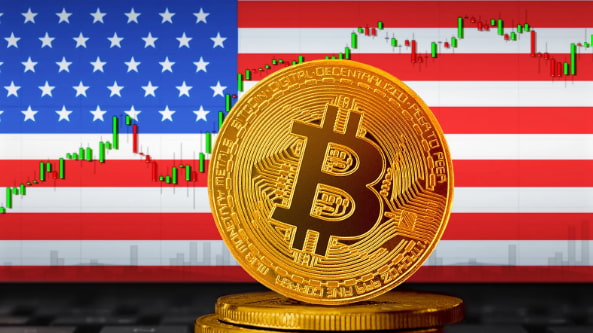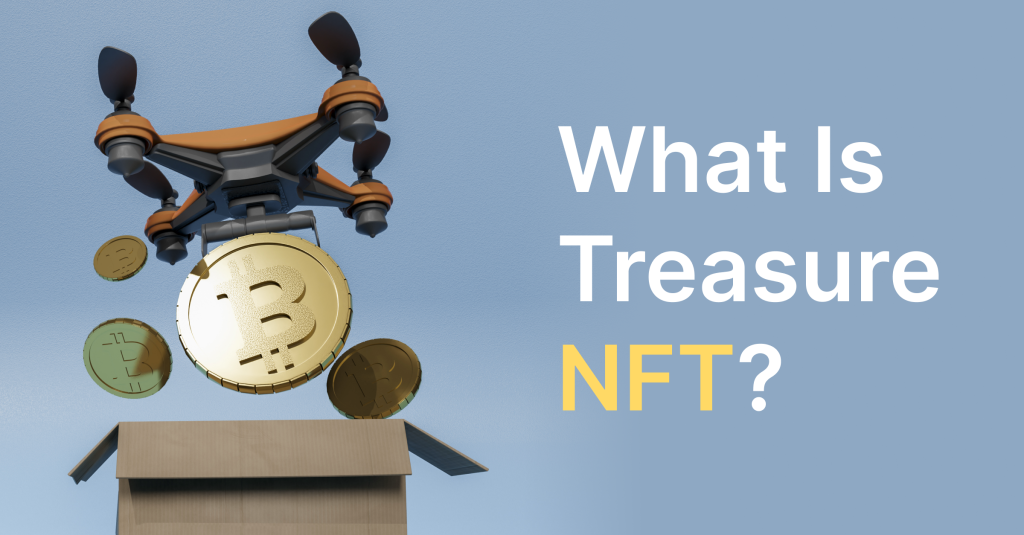Bitcoin is changing the way people handle money across the world. Some countries use it much more than others, and each country has its own reasons for adopting it.
Economic challenges, technology, and investment opportunities drive people to use Bitcoin. The countries leading in adoption show how digital currency is shaping everyday life.
This article takes a look at the top countries using Bitcoin, why citizens rely on it, and how it is used in daily transactions, trading, and other practical ways across these nations.
Top 10 Countries That Use Bitcoin: Quick Overview
Vietnam leads in Bitcoin adoption with 20.6% ownership, primarily for remittances and payments.
Have a look at the Top 10 Countries That Use Bitcoin:
| No | Country | Average Bitcoin Ownership (%) | Key Adoption Reason | Popular Use Cases |
|---|---|---|---|---|
| 1 | Vietnam | ~20.6% | Youth-driven adoption | Remittances, payments |
| 2 | Philippines | ~13.5% | Remittances & fintech-friendly | Payments, trading |
| 3 | United States | ~15.2% | Institutional & retail adoption | Trading, investment |
| 4 | Brazil | ~12.2% | Investment & retail adoption | Payments, investment |
| 5 | Nigeria | ~9.5% | Remittances & P2P trading | Cross-border transfers |
| 6 | Ukraine | ~10% | Economic challenges | Trading, investment |
| 7 | Indonesia | ~7.1% | Young, tech-friendly population | Payments, investments |
| 8 | Pakistan | ~6.2% | Growing interest, mining | Trading & remittances |
| 9 | Russia | ~6% | Interest in digital assets | International transfers |
| 10 | India | ~6.4% | Tech-savvy retail users | Trading, payments |
In 2026, the top 10 countries using Bitcoin reflect how populations engage with cryptocurrency and its impact on financial systems
1. Vietnam
Vietnam leads global Bitcoin adoption, with about 20.6% of the population using the cryptocurrency. The country’s young, tech-savvy people are driving this growth.

Many view Bitcoin as an investment and also use it for everyday payments, sending money, and remittances. It helps bypass traditional banking limitations.
Even though the government has restrictive rules on cryptocurrency, peer-to-peer trading remains active. Local exchanges and decentralized platforms make it easy for citizens to buy, sell, and use Bitcoin in Vietnam.
2. Philippines
The Philippines ranks second in Bitcoin adoption, with around 13.5% of the population using it. A strong remittance economy and openness to fintech innovation are driving this growth.

In the Philippines with a mobile-first population, cryptocurrency is especially popular among younger users who manage it through smartphone apps.
Millions of overseas Filipino workers send money home regularly, making Bitcoin an attractive and cost-effective alternative to traditional transfer services.
Many people also use Bitcoin for everyday transactions in the Philippines. Local exchanges and wallet providers operate freely, letting citizens convert Bitcoin easily.
3. United States
In America, 15% of people use Bitcoin, with both regular investors and big companies using it to protect their money and invest.
Most Americans trade Bitcoin or hold it for investment rather than daily payments. However, more stores are beginning to accept it, making it easier to use in everyday life.

Also, it is important to note that according to the Pew Research Center, roughly six-in-ten Americans (63%) say they have little to no confidence that current ways to invest in, trade, or use cryptocurrencies are reliable and safe.
This includes three-in-ten adults who say they are not at all confident, and a third who say they are not very confident.
But still, the good news is that the rules around Bitcoin in the US are changing. Government programs and more straightforward guidelines are helping people feel safer using and investing in cryptocurrency.
4. Brazil
In Brazil, about 12% of people use Bitcoin, turning to it to protect their money from inflation and a weak currency. Many see it as a safe way to store value.

People in Brazil use Bitcoin for both investments and everyday payments, with urban areas showing higher adoption since fintech apps and local exchanges make it easy to buy, sell, and manage cryptocurrency.
As more shops and businesses begin accepting Bitcoin, people can spend it on goods and services more conveniently. This growing acceptance is helping Bitcoin become a regular part of daily life across the country.
5. Nigeria
Nigeria has roughly 22 million cryptocurrency users, equivalent to 10.3% of the population. This is a major leap from just 0.4% a decade ago, showing rapid growth in adoption.

Many rely on Bitcoin despite banking restrictions, using peer-to-peer trading to access and manage cryptocurrency easily.
The Nigerian currency can be unstable, so people turn to Bitcoin to protect their money and send payments across borders.
It is often faster and cheaper than traditional banking, especially for remittances and online transactions.
6. Ukraine
Ukraine has around 10% of its population using Bitcoin, with economic challenges and political uncertainty making many see it as a safer option than the local currency.

The country is also among the largest holders of the first cryptocurrency, with about $3 billion worth of bitcoins.
Many Ukrainians trade Bitcoin or hold it as an investment to protect their savings. It has become a reliable way to stay financially secure during uncertain times.
The government is beginning to recognize cryptocurrency, making it easier for exchanges and businesses to operate. This support encourages more people to adopt and use Bitcoin.
7. Indonesia
Bitcoin use is rising steadily in Indonesia, with nearly 7% of people involved. Young, tech-savvy citizens are driving this growth as digital finance becomes more common.

Most people hold Bitcoin as an investment, but it’s also used for online payments and sending money abroad. Apps and local exchanges make trading simple, helping more people manage their money digitally.
Starting August 1, the government plans to raise taxes on cryptocurrency transactions, with higher rates for trades on overseas platforms.
Even with tighter rules, Bitcoin’s popularity keeps growing among Indonesia’s digital generation.
8. Pakistan
Bitcoin is gaining attention in Pakistan, with around 6% of people using it. Interest is growing even though the rules are not fully clear, and mining is increasing in areas with cheap electricity.
Many Pakistanis trade Bitcoin or use it to receive payments from abroad and for remittances. It has become a useful way to move money without relying on traditional banking.
Peer-to-peer networks make it easy to buy, sell, and send Bitcoin. These platforms allow people to use cryptocurrency even when access to banks is limited.
9. Russia
In Russia, about 6% of people use Bitcoin. Interest has grown as many look for alternative financial options, especially with sanctions and banking restrictions affecting international payments.

Russians primarily trade Bitcoin or use it for cross-border transfers. It also serves as a way to preserve wealth when traditional banking or the local currency faces challenges, giving people more financial flexibility.
The government has recently approved Crypto mining in some areas, hinting at possible regulatory changes. This could make it easier for more people to trade and use cryptocurrency in the future legally.
10. India
Bitcoin is not as popular in India as in some other countries, with around 6% of people using it. Most users are city-based and comfortable with technology, which helps the market grow slowly but steadily.
Many Indians trade Bitcoin as an investment, while some also use it for payments through local and international platforms. It’s becoming a useful way to send money abroad faster and at lower cost.
Even though regulations remain unclear, awareness and access to exchanges are increasing. More people are now exploring Bitcoin both as an investment option and a digital payment method.
Which Country Has the Highest Bitcoin Adoption?
Vietnam has the highest Bitcoin adoption, with about 20.6% of its population using the cryptocurrency.
The country’s young, digitally connected population, high smartphone usage, and limited access to traditional banking encourage people to rely on Bitcoin for savings and transactions.
Vietnam’s peer-to-peer trading volume ranks among the highest globally. While other countries may have more users in absolute numbers,
Vietnam’s adoption rate shows widespread acceptance, integrating Bitcoin into everyday financial activities and making it a leader in population-level usage.
Factors Influencing Bitcoin Adoption in Top Countries
Several key factors shape why certain nations embrace Bitcoin more readily than others:
- Economic factors
Several economic factors, like high inflation, unstable currencies, or strict capital controls, drive Bitcoin adoption. Citizens in countries such as Argentina, Turkey, and Nigeria use it to protect savings and maintain purchasing power.
- Technological infrastructure
Many technological factors, including widespread internet access, high mobile phone penetration, and established digital payment systems, make Bitcoin easier to adopt.
Likewise, strong connectivity ensures smooth transactions, easy access to exchanges, and simple wallet management for daily users.
- Social and investment factors
Several social and investment factors influence adoption. Younger, tech-savvy populations are more willing to use digital currencies.
Additionally, growing interest in Bitcoin for investment, portfolio diversification, and inflation hedging is encouraging broader global acceptance.
Trends in Bitcoin Usage Across Top Countries
Trends in Bitcoin usage across top countries show how people use the cryptocurrency in daily life. Economic conditions, regulations, and comfort with technology all play a big role in adoption.
Countries like Vietnam, the Philippines, and Indonesia lead in peer-to-peer trading. Many people there use Bitcoin for remittances and payments because it is faster and cheaper than traditional banking.
Brazil shows a mix of investing and spending as more merchants begin accepting cryptocurrency.
In Africa and the Middle East, currency instability and remittance needs encourage Bitcoin use. Younger people trade more actively, while older users mostly hold it. Urban areas see higher adoption due to easier access to technology and exchanges.
Also Read:
Conclusion: Vietnam Uses Bitcoin The Most In The World!
Bitcoin use around the world shows how different factors shape its adoption. People in each country use it for different reasons, like sending money, investing, or making payments.
Issues like currency problems, access to technology, and population age affect how Bitcoin is used.
Countries with strict financial rules rely more on peer-to-peer trading, while developed nations focus on using it for investments.
As more people get comfortable with digital money, Bitcoin is likely to keep growing. Its use is spreading and becoming both a useful tool and an investment choice, even if patterns differ by region.
FAQs
Vietnam is expected to see the fastest Bitcoin adoption growth, driven by its young, tech-savvy population and expanding digital financial infrastructure.
Bitcoin adoption can boost financial inclusion, reduce reliance on traditional banks, lower transaction costs, and influence local currency stability and investment behavior.
Countries like Pakistan, Venezuela, and Vietnam see growing Bitcoin adoption despite restrictions, driven by economic needs and grassroots initiatives.
Urban populations adopt Bitcoin more for trading, payments, and investments due to better technology access, while rural users use it mainly for savings.
Exchanges provide easy access, secure trading, and liquidity, enabling more people to buy, sell, and use Bitcoin confidently.


